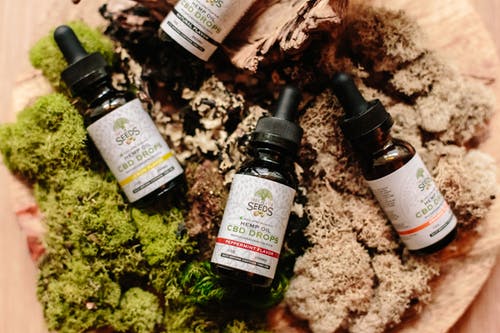U.S, February 27, 2020 (CANNABISTECH) Blockchain offers a solution for eliminating cannabis knock-offs.
With an industry poised to hit $66.3 billion by 2025, as per a recent prediction, it’s not surprising to hear that counterfeiters have set their sights on weed. During the vape crisis of 2019, it became crystal clear how illegal and counterfeit vape sales could hurt the burgeoning industry. Unlike fake handbags and DVDs, counterfeit cannabis is immediately dangerous for the final customer.
To improve brand legitimacy and protect against rip-offs, CannVerify has launched a two-step and blockchain-supported verification system. A tamper-proof QR code, applied to any cannabis product, links the consumer with detailed product information. Plus, a unique one-time-use serial number immediately establishes legitimacy.
THE GROWING IMPACT OF COUNTERFEITS IN CANNABIS
Counterfeit cannabis products are just the next rock in the road for the global expansion of legal cannabis, but one with the potential for causing serious public harm. It starts with product sourcing. Growing cannabis brands are increasingly sourcing parts and technologies from overseas manufacturing hubs to cut costs. But, as their supply network expands over international borders, it becomes more arduous to protect against rip-offs.
As a recent Leafly investigation found out, it’s remarkably easy to order empty vape cartridge blanks from a website like Alibaba and pay a few extra cents to get a logo stamped on it. These cartridges, which may appear identical to the original brand, are made from cheap and dangerous materials that leak into the liquid when vaped by the consumer. The vape crisis highlighted the health impacts of these inexpensive and inferior materials.
As Peter Hackett, an industry expert interviewed for the Leafly investigation, explained, “More than 95% of North America’s illicit vape pen hardware is manufactured in the Bao’An District of Shenzhen, China.” For the right price, these factories will produce just about anything that’s requested, including counterfeit packaging to match. Even the CCELL stamp, an industry-standard used to certify quality, is easily replicated within these counterfeit-producing factories.
The more popular the brand, the more keen counterfeiters are to replicate it and ride the wave of commercial success. Consumer favorites like Heavy Hitters, 710 Kingpen, Cookies, Brass Knuckles, and Jungle Boys are all targets for knock-off cartridges.
While knock-off vape cartridges get the most attention these days, they aren’t the only cannabis products fighting a tsunami of fakes. CannVerify’s founder, Shant Jabourian, ordered a package of rare cannabis seeds but ended up with a delivery of counterfeits. His frustration with the receipt of fake cannabis seeds ended up launching CannVerify and the pursuit of authenticity and robust brand protection.
A CLOSED-LOOP VERIFICATION PROCESS
In late 2019, Jabourian launched Can Verify at MJBizCon in Las Vegas. Combining his eCommerce expertise with his brother’s web development mastery, the final version of CannVerify’s brand protection service is a closed-loop system based on blockchain technology.
The concept is simple enough — a serial code, a QR code, and a sticker — yet it creates a robust and tamper-proof product verification system. Designed with flower, edible, and topical producers in mind, it is a way for brands to seal each product with a two-step verification process, which protects their product and keeps the customer safe.
Each customized holographic seal displays a visible QR, which connects the consumer to detailed product information. The QR code integrates with lab results and other brand-specific product information.
A subsequent step, the scratch-off serial code, allows the consumer to authenticate the product against a blockchain-secured database. The serial codes are one-time-use and monitored for suspicious activity. Through a mobile app, CannVerify instantly notifies consumers should there be an issue with the product.
HOW TO PROTECT YOUR BRAND (AND YOUR CUSTOMERS) FROM COUNTERFEITS
Besides everyone growing their own plants, what are the easiest ways to protect your brand, your customer, and guarantee authenticity through the supply chain? There are several approaches manufacturers may want to take into consideration.
First and foremost is control over the product. Whether your brand sells flower, topicals, or vape cartridges, ensure you are producing this in-house instead of farming out to a third party. As the vape crisis has demonstrated, it is remarkably easy for your brand, logo, and technology to slip through the cracks with overseas manufacturing. While you may assume they are protected, for the right price, anything can find its way from your contracted factory and into a counterfeit facility.
If you cannot bring the production in-house, at least find local manufacturers. As many China-based manufacturing experts will tell you, it’s much easier to protect your branding and technology when you speak the language, and facility tours don’t require international flights and months of planning.
A secondary approach to brand security is to invest in anti-counterfeiting technology like a holographic product seal. CannVerifyy is already working with more than 90 cannabis brands, with more than a million products verified using their unique technology under this very premise. With customized holographic seals, a two-step verification process, and a single-use serial number, the risk of forgery is eliminated.
After purses, luxury clothing, and makeup, cannabis is the next frontier for knock-off products. There is big money in marijuana, meaning there is ample opportunity for scammers. As the market for cannabis continues to exceed all expectations, all cannabis products will come under threat from counterfeits. Brands need to take the necessary steps to protect their customers from knock-offs because the health implications are now abundantly clear.







